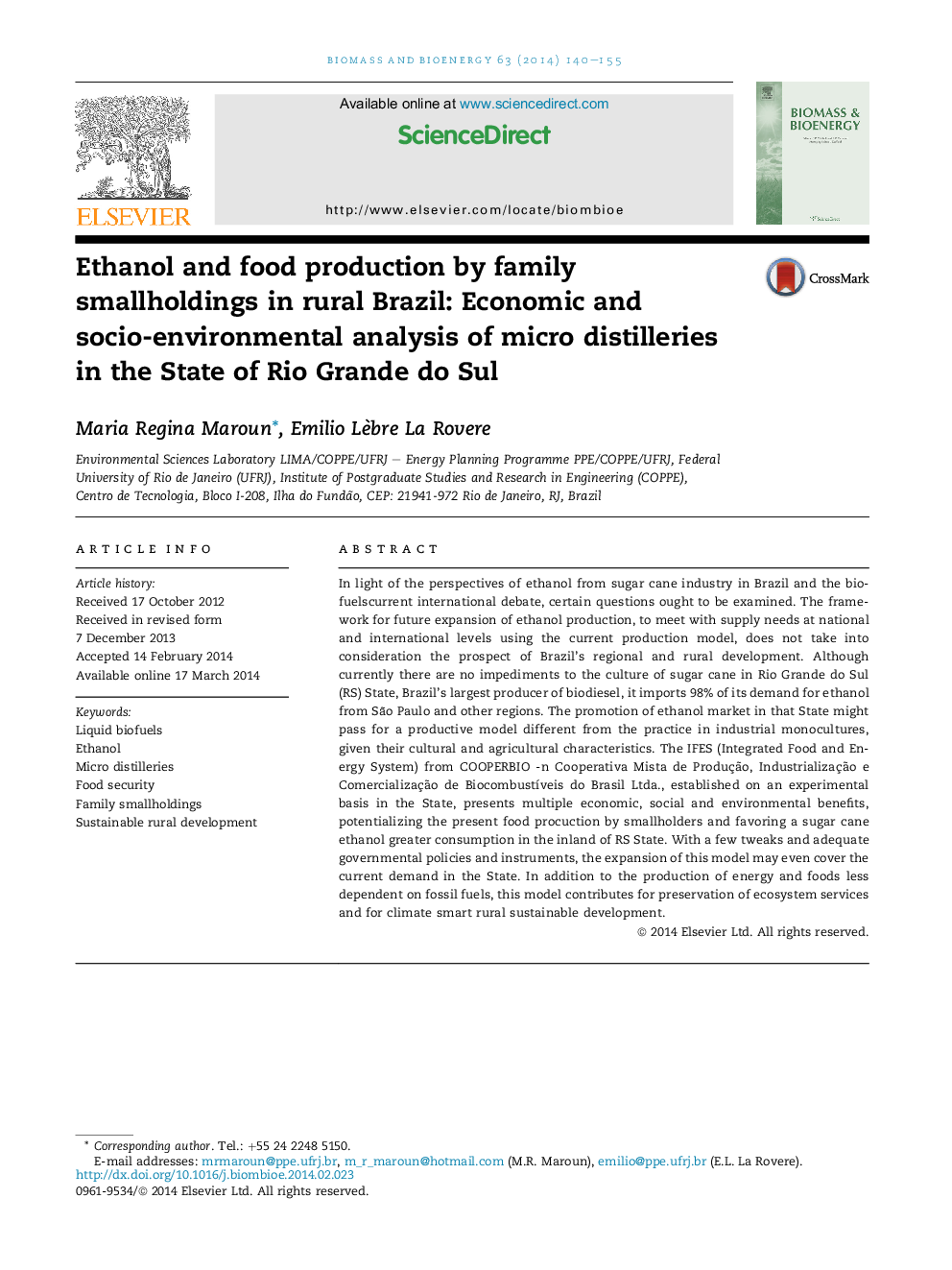| کد مقاله | کد نشریه | سال انتشار | مقاله انگلیسی | نسخه تمام متن |
|---|---|---|---|---|
| 676921 | 1459830 | 2014 | 16 صفحه PDF | دانلود رایگان |

• Integrated food and energy system (IFES) and rural sustainable development promotion.
• Small scale production of hydrated ethanol (sugar cane) in Brazil's Southern region.
• Smallholders's food and energy security and ecosystem services preservation.
• Smallholding families strengthening, agroecological practices and climate change.
• International biofuels debate and Brazilian ethanol and biodiesel production.
In light of the perspectives of ethanol from sugar cane industry in Brazil and the biofuelscurrent international debate, certain questions ought to be examined. The framework for future expansion of ethanol production, to meet with supply needs at national and international levels using the current production model, does not take into consideration the prospect of Brazil's regional and rural development. Although currently there are no impediments to the culture of sugar cane in Rio Grande do Sul (RS) State, Brazil's largest producer of biodiesel, it imports 98% of its demand for ethanol from São Paulo and other regions. The promotion of ethanol market in that State might pass for a productive model different from the practice in industrial monocultures, given their cultural and agricultural characteristics. The IFES (Integrated Food and Energy System) from COOPERBIO -n Cooperativa Mista de Produção, Industrialização e Comercialização de Biocombustíveis do Brasil Ltda., established on an experimental basis in the State, presents multiple economic, social and environmental benefits, potentializing the present food procuction by smallholders and favoring a sugar cane ethanol greater consumption in the inland of RS State. With a few tweaks and adequate governmental policies and instruments, the expansion of this model may even cover the current demand in the State. In addition to the production of energy and foods less dependent on fossil fuels, this model contributes for preservation of ecosystem services and for climate smart rural sustainable development.
Journal: Biomass and Bioenergy - Volume 63, April 2014, Pages 140–155